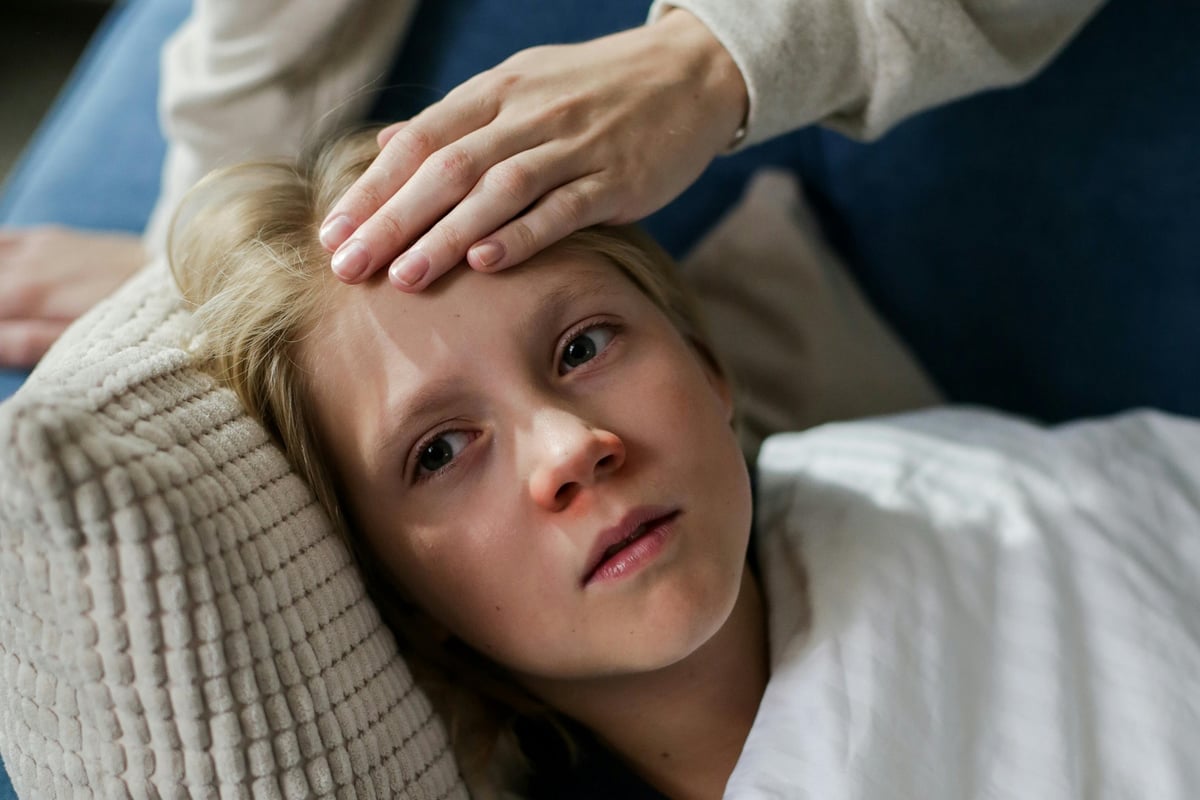Health
Parents Urged to Watch for Four Key Chickenpox Symptoms

As schools and nurseries reopen, parents are advised to be vigilant for symptoms of chickenpox, a highly contagious viral infection. Children can transmit the virus even before exhibiting any signs, making early detection crucial for preventing outbreaks.
Public Health England has outlined four primary symptoms that parents should monitor. The first is a characteristic itchy rash that usually begins on the face and trunk before spreading across the body. The rash develops into small, fluid-filled blisters that eventually crust over.
The second symptom is fever, which often accompanies the rash. This can range from a mild temperature to a more significant fever, typically lasting a few days. Parents should also be alert for fatigue and loss of appetite, as these can signal the onset of the infection.
Another important symptom is the appearance of spots, which can manifest in waves as new ones develop. This means that a child may have different stages of the rash at the same time, complicating the diagnosis. The presence of these spots is a clear indicator that a child may have contracted chickenpox.
Finally, children may experience mild headaches or abdominal discomfort. These symptoms can often be mistaken for other common illnesses, underscoring the importance of careful observation by parents.
With children returning to educational settings, the risk of transmission increases significantly. According to Public Health England, chickenpox is most contagious one to two days before the rash appears and remains so until all blisters have crusted over. This means that a child who has not yet shown symptoms can unknowingly spread the virus to classmates.
Vaccination remains the most effective way to prevent chickenpox. The vaccine is typically administered to children around the age of one, with a booster recommended before starting school. Parents are encouraged to consult with healthcare providers to ensure their children are up to date on vaccinations.
If parents suspect their child has chickenpox, they should keep the child at home to prevent further spread and contact a healthcare professional for guidance. Early intervention can significantly reduce the risk of complications, especially in younger children or those with weakened immune systems.
In conclusion, as children return to schools and nurseries, parents must remain vigilant for the four key symptoms of chickenpox. By recognising these signs early, they can help protect not only their children but also their community from potential outbreaks.
-

 Entertainment2 months ago
Entertainment2 months agoIconic 90s TV Show House Hits Market for £1.1 Million
-

 Lifestyle4 months ago
Lifestyle4 months agoMilk Bank Urges Mothers to Donate for Premature Babies’ Health
-

 Sports3 months ago
Sports3 months agoAlessia Russo Signs Long-Term Deal with Arsenal Ahead of WSL Season
-

 Lifestyle4 months ago
Lifestyle4 months agoShoppers Flock to Discounted Neck Pillow on Amazon for Travel Comfort
-

 Politics4 months ago
Politics4 months agoMuseums Body Critiques EHRC Proposals on Gender Facilities
-

 Business4 months ago
Business4 months agoTrump Visits Europe: Business, Politics, or Leisure?
-

 Lifestyle4 months ago
Lifestyle4 months agoJapanese Teen Sorato Shimizu Breaks U18 100m Record in 10 Seconds
-

 Politics4 months ago
Politics4 months agoCouple Shares Inspiring Love Story Defying Height Stereotypes
-

 World4 months ago
World4 months agoAnglian Water Raises Concerns Over Proposed AI Data Centre
-

 Sports4 months ago
Sports4 months agoBournemouth Dominates Everton with 3-0 Victory in Premier League Summer Series
-

 World4 months ago
World4 months agoWreckage of Missing Russian Passenger Plane Discovered in Flames
-

 Lifestyle4 months ago
Lifestyle4 months agoShoppers Rave About Roman’s £42 Midi Dress, Calling It ‘Elegant’









